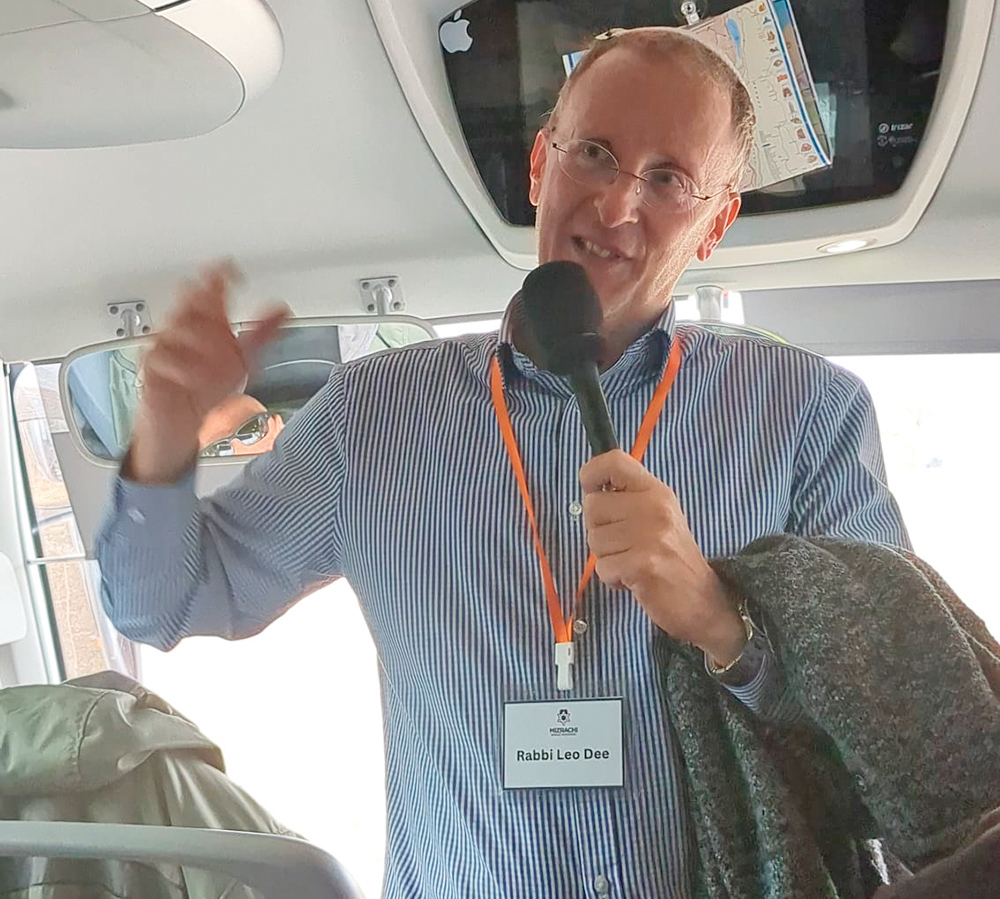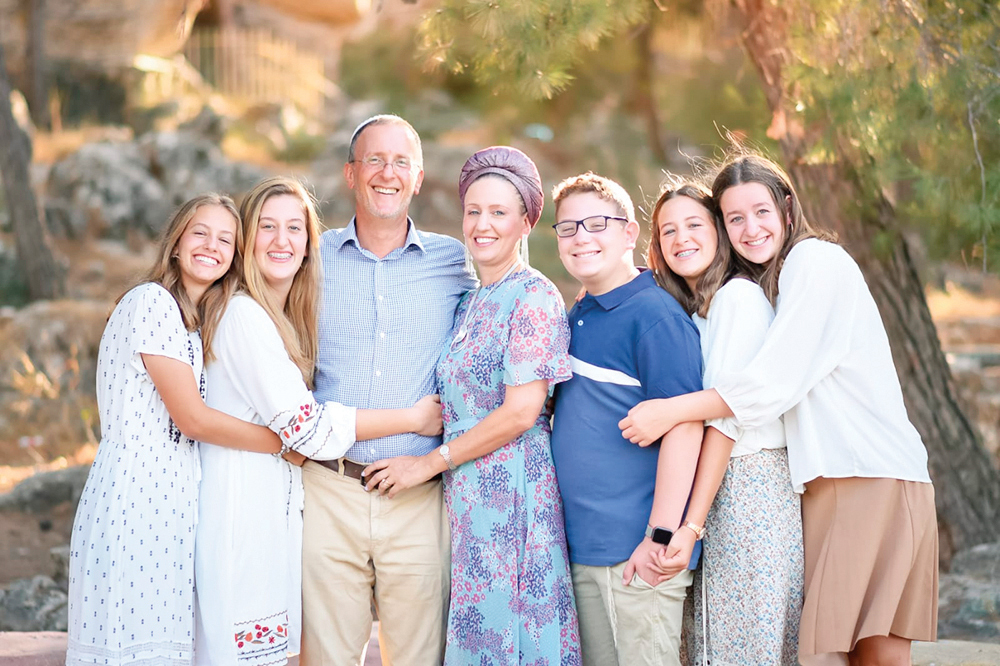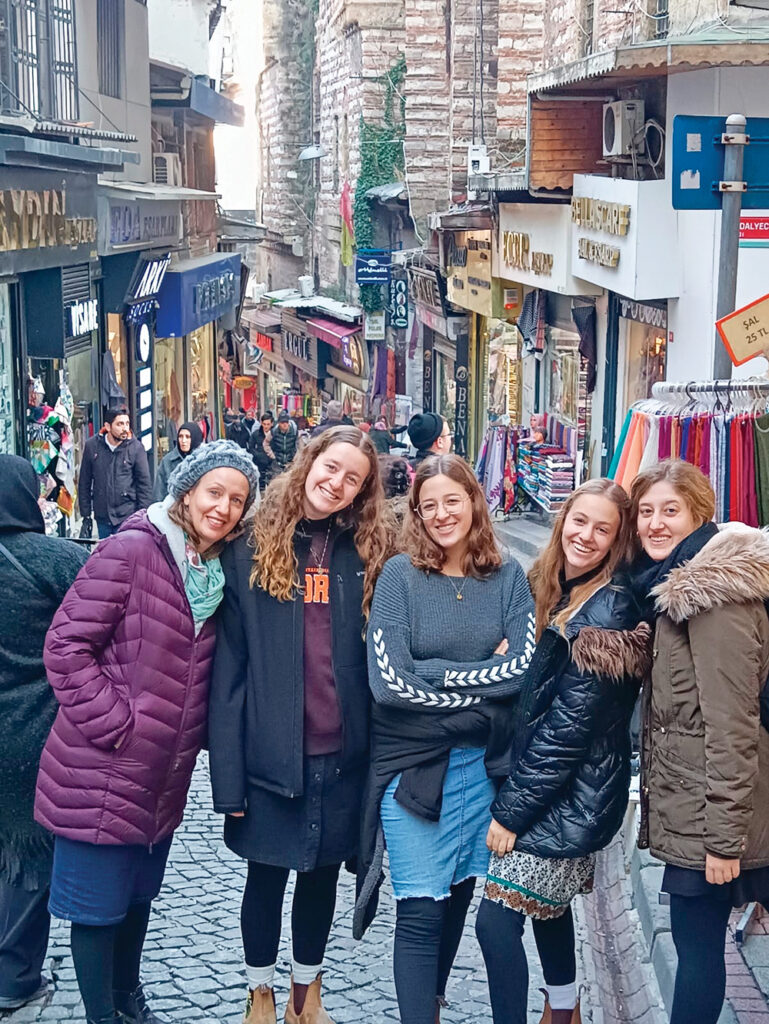
Rabbi Leo Dee is a man on the move; this time, he is traveling by car to speak in Raanana. During our 40-, no, 50-minute Zoom session, he shapes his narrative. That is, after a brief caveat during which I acknowledge the incomprehensible nature of Rabbi Dee’s tragedy, and how that tragedy spurred his current direction. As if on cue, he moves the conversation to aliyah and specifically, American aliyah. I mention that European Jews’ enhanced awareness of their vulnerability is now shared by many American Jews, who only now recognize that life here is precarious.
“October 7 was a wakeup call for all the American Jews who said it could never happen here and it’s happening there,” he concedes. Many American Jews have stressed to him the importance of a Jewish Diaspora, one that assists Israel. Yet, Rabbi Dee’s view is that not only have American leaders largely abandoned Israel, but that the current administration has provided extensive aid to Iran (and to Hamas, by the U.N. as its proxy), failed to protect Jewish students, and constrained armament shipments to Israel, despite rhetoric to the contrary. He considers today’s antisemitism to be more frightening than that of early Nazism. When Nazism grew, he says, it had two elements that the current antisemitism lacks—a charismatic leader and a limited geographic span—just Germany and Austria, whereas today, there is no comparable charismatic leader, and the antisemitism is global.
To illustrate his contention that Jews belong in Israel, Rabbi Dee draws upon an anecdote from his own family history– the story of his Great Uncle Leopold Dwelaitski, for whom he was named. Although most of his Latvian relatives left for England (where the name was changed to Dee) or Palestine in the 1930s, his great uncle Leopold remained comfortable in Riga. In 1942, Leopold was shot in front of his house, together with his wife and children, whose names, as well as the location of their bodies, remain unknown.
During a family outing to search for his great-grandmother’s grave in Safed, Rabbi Dee discovered a plaque dedicated to Great Uncle Leopold and Leopold’s murdered, nameless wife and children. In contrast, in Israel, Rabbi Dee’s murdered wife’s and daughters’ names are widely known. The name of a Jew in his rightful home is remembered, he adds, so we pivot to speak about Israel.

Advocating for Aliyah
I ask Rabbi Dee about promoting aliyah. During his six-year UK tenure as rabbi, he had pushed for aliyah, but can’t take sole credit for Radlett’s status as the community with the most olim. The London area kehillah was very Zionist from the start, and the Dees’ Tzioni orientation likely contributed to their selection as “shluchim.”
Since the recent anti-Israel, antisemitic violence in America erupted, Rabbi Dee’s deep, acute pain screams out, “1939.” He wonders—what would have happened if someone told his namesake Leopold in 1939 to get out? Maybe they did, and maybe he didn’t heed their warning—”but there must have been some people who were convinced, or otherwise they wouldn’t have come.”
Rabbi Dee’s compelling economic argument for American aliyah is that when 5% of a Jewish community sell their houses, and leave, the value of homes in that community drops appreciably. When 10% decide to make aliyah, those values plummet exponentially. Consequently, with less equity, buying property in Israel more difficult—so why wait?
He also identifies other compelling reasons for aliyah. He sees the war in Israel in a larger context. After 75 years of the Medina, which represents three generations of Jews–a Chazakah, and the decline of internal fighting in Israel post 10/7, Israel, a light unto the nations, is at the center of a world stage.
In his pro-aliyah argument, Rabbi Dee underscores the Ramban’s and the Rambam’s writings. Whereas Ramban argues that living in the Diaspora is permitted for Jews as “practice,” the Rambam argues that it is only permissible if most Jews reside outside Israel. As Jewry has just about reached Rambam’s tipping point, and more Jews may live in Israel than in the Diaspora, Jewry must now grapple with this halachic and personal dilemma.
Halachic obligations and aliyah aside, Rabbi Dee’s immediate reaction to American antisemitism and student anti-Zionist uprisings (and media coverage of them) follows.
Cultural Contrasts–American vs.
Israeli Youth Post 10/7
The contrast between American and Israeli youth, Rabbi Dee maintains, is night and day. Of the latter, he is immensely proud, and references an article on the patriotism of digitally savvy Gen Z military age students (Schneider, 2023 [see below]). He adds. “Nobody could have believed that our youth could put down their phones for five minutes, let alone fight like the bravest soldiers we’ve ever had.” Nor could they believe that when reservists were called up, it was anticipated that 60% would turn out, not the 120% who responded. The culture, love of country, and unity in Israel are so incredible, Rabbi Dee says, smiling.
“It’s heartwarming, and at the same time, heartbreaking to see what American youth are doing” to break the country apart, for which, he believes, there will be no quick fix—unless, God forbid, there is some massive attack on the US. He also faults politicians and the media for applying moral equivalence to both sides in the war in Israel, where none exists. When they equate the murder of his family by terrorists with non-premeditated casualties on the opposing side, or don’t call out antisemites, it’s problematic. “A culture that is so unable to determine right from wrong,” he says, lacks a future. So, in the wake of his own tragedy, what course has he taken and what does he see as his role in countering moral equivalence and providing chizuk for his country?

Coping With Tragedy by Reaching Out to Others
Rabbi Dee, inspired by his wife Lucy, an English teacher, taught math until the tragedy. He took a sabbatical, spoke about unity, and when the war broke out, was determined to give chizuk to various communities. Now, with America as it is, he promotes aliyah to any audience willing to hear him. During this past U.S. visit, he spoke 26 times in 18 locations. On May 25, at Shomrei Torah of Fair Lawn, his message to the congregation was principally about aliyah, and Israel as the true Jewish homeland.
Recently, Rabbi Dee and several American Israeli friends in Israel explored ways to effectively introduce aliyah to those not yet committed. They hope to achieve this through a new organization that would complement the work of Nefesh B’Nefesh. He is positive that despite such suffering and upheaval in the world, we are entering a period of geulah, with Israel mastering its own destiny, eradicating its enemies, and facing down Western leaders who also threaten it. Although Rabbi Dee concedes that Israel’s leadership is imperfect, he believes it can face up to these threats on multiple fronts.
His “pitch” for aliyah is compelling, yet I ask how impoverished and even mid-income people can survive Israel’s economic inequity, despite nationalized healthcare and other benefits. When wealthy foreigners immigrate to Israel, buy properties, and raise the cost of living for others, how can the under-resourced survive? Rabbi Dee briefly mentions his murdered daughter Maia’s National Service in Yeruham, which he describes as a once highly under-invested immigrant town where Ashkenazi leaders “dumped” poor Sephardim. Today, Yeruham is a highly developed city with low unemployment and has many amenities.
Although Israeli salaries are lower than in the U.S., Rabbi Dee stresses that free healthcare, very inexpensive primary, secondary, and university education, and other benefits offset some increased costs of living in Israel. His bottom line? Net-net, the cost of living in Israel is lower and the quality of life is much better. And what about the existing discord there?
The Media vs. the Truth on
The Protests and War in Israel
Rabbi Dee emphasizes that those opposed to Israel’s war in Gaza are a small percentage of the population, and a shrinking one. That said, the pain of the hostage families is unbearable. Anyone in that situation would behave accordingly—and cannot be faulted for doing so. “It’s a very unusual and exceptional situation,” he says, “and our enemies know how to pull on the strings that hurt us most.”
When I mention Israel’s inadequate PR, Rabbi Dee responds that the Palestinians’ and pro-Palestinian activists’ actions aid Israeli PR, and that protestors on U.S. campuses should be left to embarrass themselves by their actions. They “create the best PR for Israel we could possibly have.” Despite what the media convey, research shows that most Americans support Israel in this war (except he adds, for indoctrinated 18–24-year-olds swayed by Qatari money, and whose tactics have morphed from rhetoric into destructive action). Additional research across party lines suggests a significant distrust of both mainstream and social media. When faced with “fake news,” individuals must trust their “gut” to make important decisions. “Hashem has put into our gut,” he says, “the ability to distinguish right from wrong, and now with fake news, people must use that ability to decide for themselves.”
Rabbi Dee ends on an optimistic note. He believes that we are at a turning point in history and that for the first time in his lifetime, people will recognize the truth and evildoers will be on a downward spiral. May it be so.
Source:
Schneider, A. (2023, Dec. 21). TikTok kids fight like lions. Israel Today. https://www.israeltoday.co.il/read/tachles-with-aviel-tiktok-kids-fight-like-lions/
Rachel Kovacs is an Adjunct Associate Professor of communication at CUNY, a PR professional, theater reviewer for offoffonline.com—and a Judaics teacher. She trained in performance at Brandeis and Manchester Universities, Sharon Playhouse, and the American Academy of Dramatic Arts. She can be reached at [email protected]









